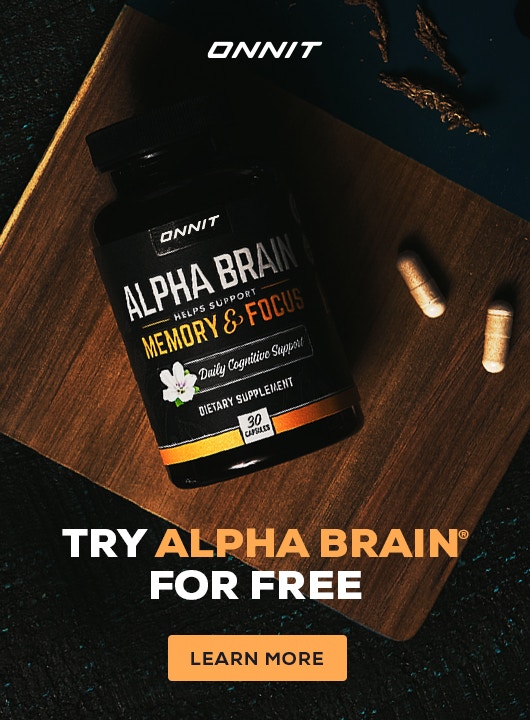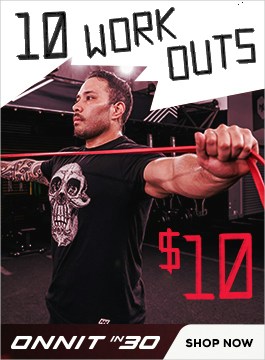You may know her as Tiffany “Time Bomb”, the first ever women’s world champion in GLORY Kickboxing’s super bantamweight division, and current featherweight champ in Lion Fight Promotions. But while she may be famous for her explosive fighting style, Tiffany Van Soest does more than just pack a punch.
The 29 year-old from Riverside, CA, visited Onnit in January to headline our Women’s Sparring Party, a female-only event designed to build community and connections for female fighters of all skill levels through the sharing of knowledge, stories, and lots of sweat.
Van Soest revealed that she’s equal parts warrior and poet, as well as a surfer and passionate social issues advocate.
Q&A with Tiffany “Timebomb” Van Soest
Onnit: How do you feel as a woman competing in a sport that’s dominated by men?
Van Soest: I see a lot more women involved in combat sports now than when I first started. As far as being a woman in a male-dominated industry, I think women fighters face the same issues that women face everywhere—the difference is that we are getting punched in the face [laughs]. Promoters don’t put women on the main event card as often as they do men. It is starting to happen more and more now, which is awesome, but pay discrepancy is still the same.
How can women fighters command the same pay as men?
We definitely don’t get paid the same as men unless you are in the top two percent of the sport, like a Ronda Rousey was. The level of competition among women has increased and women have gotten better and put on more exciting fights—we need to continue to do that until the point that there is no denying it and promoters say, “Hey, these girls are good. They need to be paid!”
Also, we women fighters need to band together and lift each other up, not tear each other down.
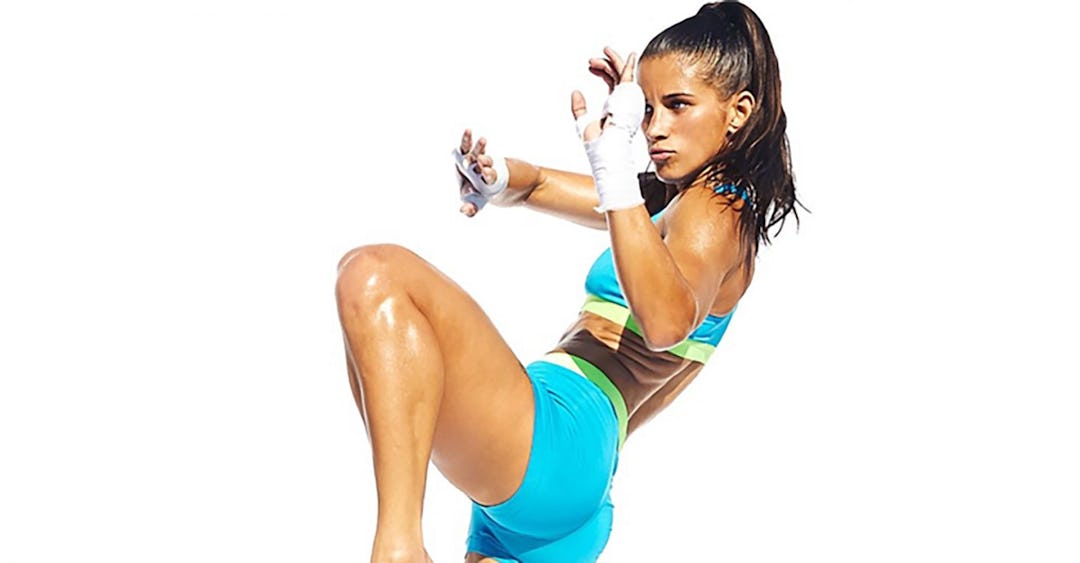
Speaking of which, in past interviews, you’ve mentioned being body-shamed for how muscular your thighs are. How can women come together to prevent that?
When I was younger, I struggled with thinking, “Man, my legs are so big.” I still think that sometimes. That’s always been my insecurity. But I would say to women struggling with their self-esteem that strong is sexy!
Women share an understanding of what it is like to be a woman. With the way the media portrays women, we can never win. All the airbrushing and photoshopping, it’s so unrealistic. We need to come to each other’s defense and compliment how one another look, not contribute to the criticism.
You’ve spoken out about bullying and sexual harassment on social media. What tips do you have for women to avoid that kind of negativity online?
Never ever, ever, ever read the comments! I think people leave demeaning comments because there are no consequences for it. If you were to say the things people say online in person, you would get the shit beat out of you [laughs]. Or the cops would get called. But because these haters can hide behind a computer screen, they can just say whatever.
Every great once in a while, I’ll respond. I try not to, but when I’m close to a fight, I’m a little on edge anyway so that’s when I might make a comment back. I’ll think to myself, “I’m getting into this; I wish someone would say something to pick a fight with me!” [laughs]
As an elite athlete, performance and recovery are hugely important for you. What supplements do you use to help on those fronts, and what advice would you give to female athletes who are looking to use supplements?
I like MCT oils for my coffee and smoothies. I use them daily. Also, Alpha BRAIN® Instant, which helps me focus during training. I love that, with Onnit, all the ingredients are earth-grown and you know exactly where they are coming from. I try to avoid taking anything synthetic as much as possible.
As far as advice to women looking to take supplements, I would say it is about knowing your body. If you feel like your energy is a little bit depleted, you may need B vitamins. If you are working out a lot, maybe you need more protein to help with muscle recovery. Be aware of what you need help with and do your research to find out what you might need to supplement with. It is not one size fits all.
What are some stereotypes you want to address regarding female fighters?
There’s a stereotype that we aren’t as feminine as other women because we’re fighters, and that’s not true. I cry almost every day in training camp [laughs]. There’s a stigma that we are really tough and mean and it’s like, “Yeah, for maybe 15 minutes at a time!” Just because we are fighters doesn’t mean we are not humans.
You’re open about your struggles with social anxiety. What ways can we shed more light on mental health problems for athletes?
I think everyone has mental health issues, but not everybody talks about it and that is the difference. Just because you don’t talk about it doesn’t mean you don’t have it in some way. I have always felt comfort when my favorite athletes or celebrities would talk about their problems. I would be like, “Oh my gosh, me too!” I would feel so relieved to know I’m not alone. It takes it a step further when it is someone you look up to and you’re like, “Oh this person who has all this also struggles with the same thing as I do,” and it makes you feel like it’s OK to be yourself.
I think being someone that has some sort of a platform means it’s that much more important for you to be using that platform for something good. To unite people and bring people together.
A lot of your fans may not know that you’re doing spoken word performances and writing poetry these days. How did you get started and how have they helped you with your social anxiety?
I have always liked to write poetry and watch spoken word but when I went to the Onnit Influencer Summit [in September 2017] and saw In-Q perform, it really inspired me. He took us through a writing workshop and that was the first time I had written anything in years. Something about him inspired me to want to write again and perform, which I had never done before. I wrote about anxiety, because during one of the nights over the course of same weekend, we had a social event with all the participants, and I went back to my hotel feeling so frustrated at myself. I had so much anxiety about being around all those people and I felt like I was being really socially awkward [laughs]. I wrote a poem about anxiety that night. When I read it out loud and performed it for the first time—by myself, obviously!—the emotion came out and it felt so good to express myself in that way. There was something just so powerful and liberating about it.
I had always considered my fighting to be like poetry in motion, because it is an expression of how I feel and the hard work I have done. It is called “martial arts,” after all. A lot of emotion goes into my training and it is such an outlet for me. My fighting is like poetry, but doing it at such a highly competitive level, it is really stressful. I found that, with poetry, I get the same release as with fighting, but without the same stressful circumstances. They are both poetry, in a sense, but in different forms.
Outside of fighting, what are you passionate about?
I love surfing and being on the beach. Surfing is a way for me to disconnect. Once I paddle out there, everything just goes away. When the waves are really big, I can push myself and continue to discover who I am on the inside. When the waves are mellow, I can just focus on surfing. Either way, you are cooperating with one of the greatest forces on this earth, which is the ocean. It can be either humbling or empowering.
What encouragement would you give to women wanting to break into martial arts?
You’ve just got to jump in head first! It’s never too late. Women think they are too old or will never be good enough. You just have to show up. That is the most important thing.
See Van Soest in her upcoming rematch against Anissa Meksen on March 9th for GLORY Kickboxing, and follow her on Instagram, @tiffanytimebomb.
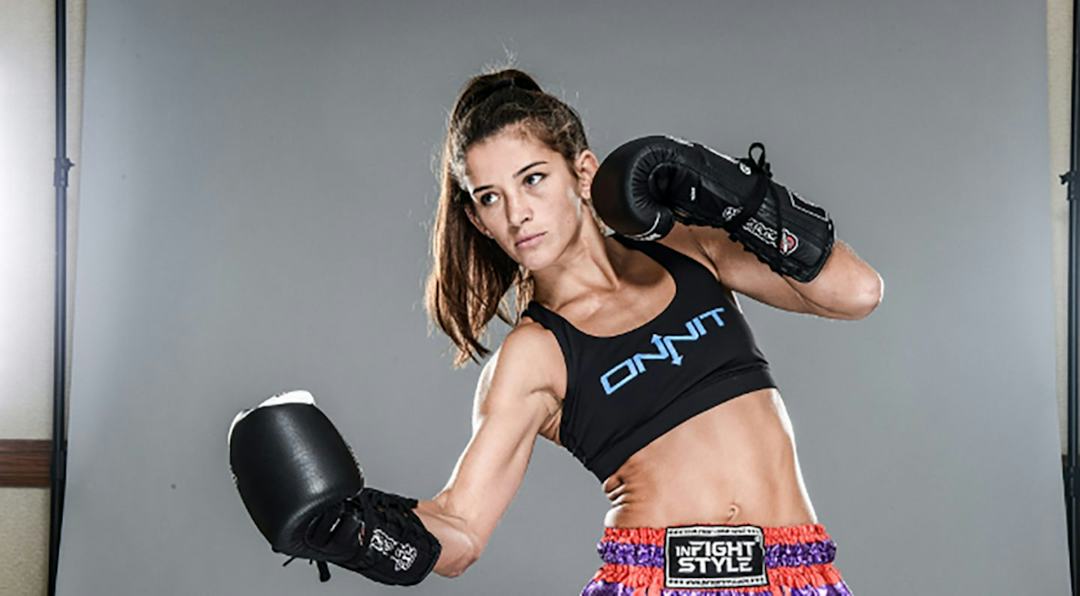
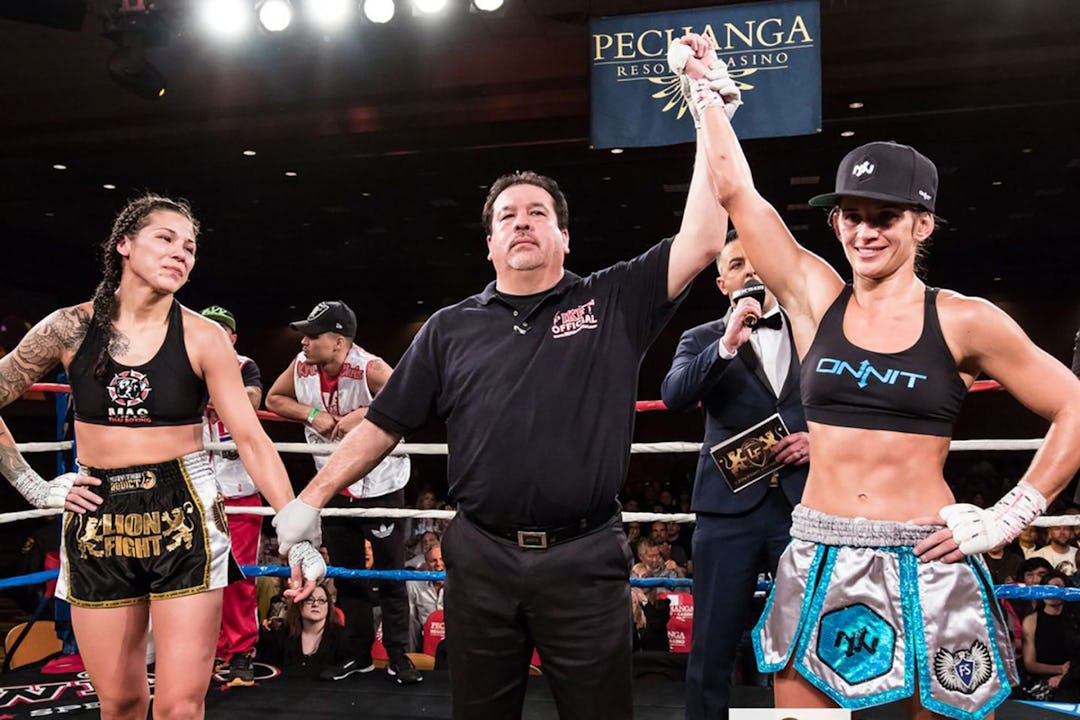
)




